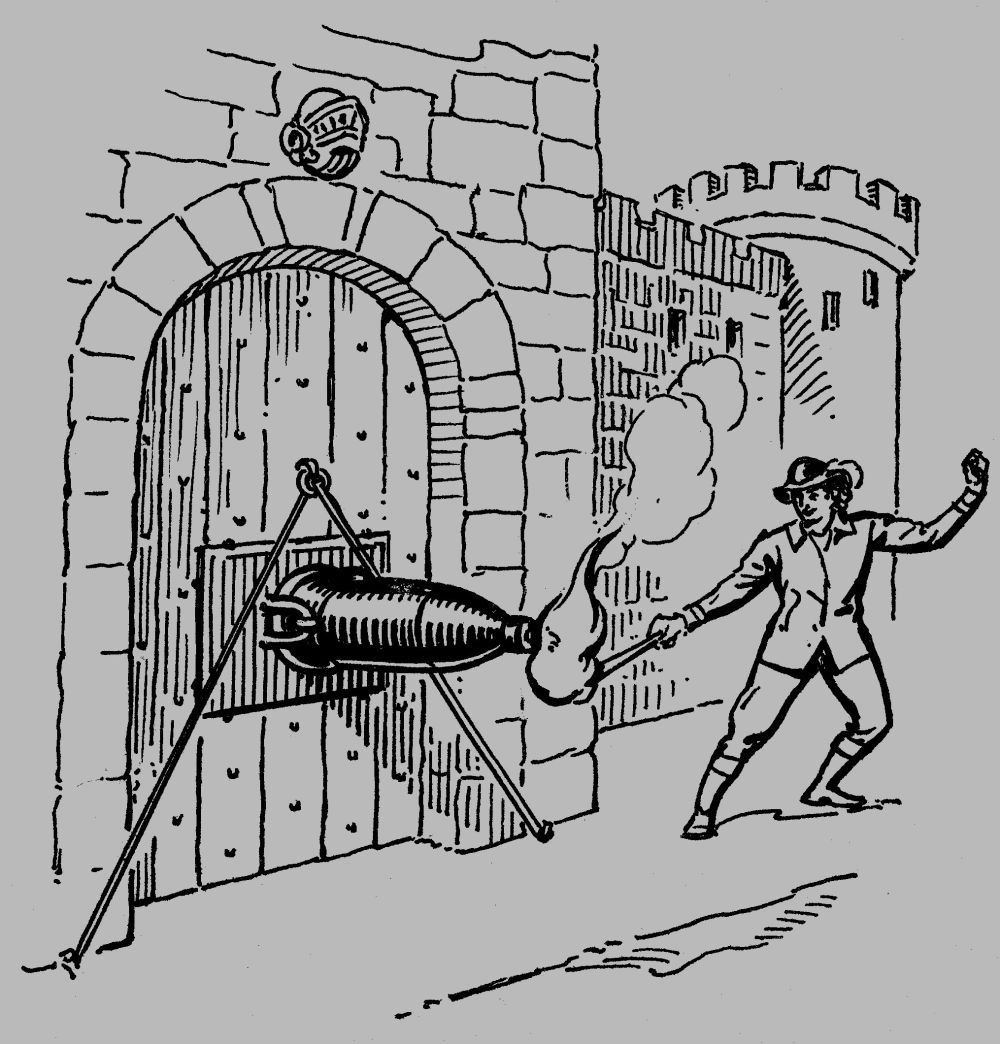Petard: Difference between revisions
Jump to navigation
Jump to search
Amwelladmin (talk | contribs) No edit summary |
Amwelladmin (talk | contribs) No edit summary |
||
| Line 1: | Line 1: | ||
{{a|devil|{{image|petard bomb|jpg|Archegos risk management yesterday.}}}} | {{a|devil|{{image|petard bomb|jpg|Archegos risk management yesterday.}}}} | ||
{{quote | {{quote|HAMLET: ''Let it work, <br> | ||
For ’tis the sport to have the enginer <br> | For ’tis the sport to have the enginer <br> | ||
Hoist with his own petard; and ’t shall go hard <br> | Hoist with his own petard; and ’t shall go hard <br> | ||
Revision as of 11:51, 3 April 2023
|
HAMLET: Let it work,
For ’tis the sport to have the enginer
Hoist with his own petard; and ’t shall go hard
But I will delve one yard below their mines
And blow them at the moon.
Petard
/pɛˈtɑːd/ (n.)
From French: a small bomb comprising a box filled with powder, used to blast down a door or to make a hole in a wall. A squib; a firecracker. If it goes off it will frighten the bejesus out of the financial analyst community and may cause a bank run.
Note, to hoist something is to blow it up, not to raise it.
Hence, to be hoist by one’s own ~: to blow oneself up. Something that financial institutions are periodically prone.
See also
- Lucky
- The first rule of Systemic Solvency Club
